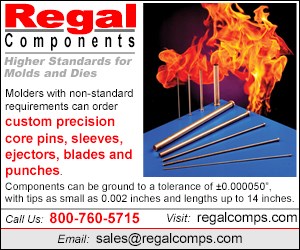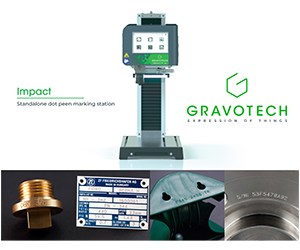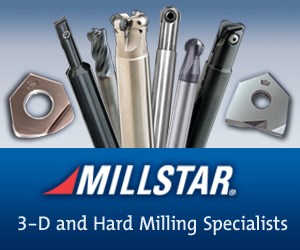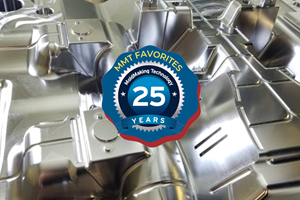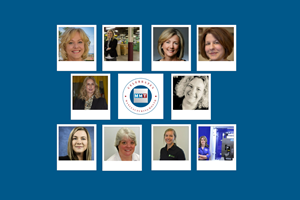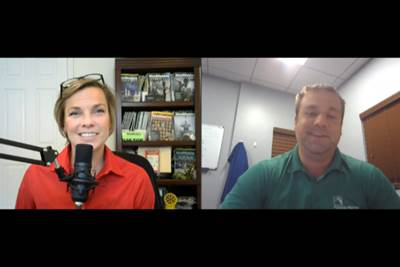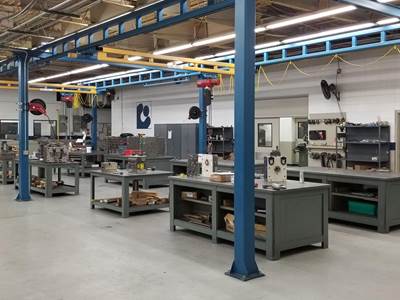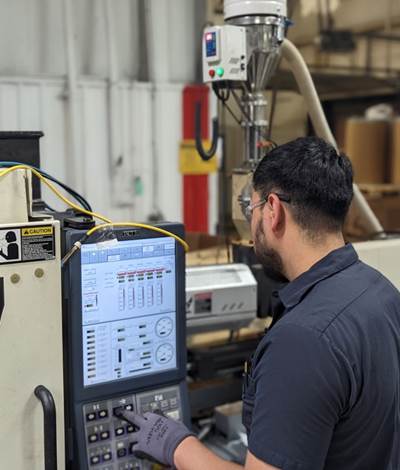
Pyramid Molding Group has implemented a unique strategy to ensure successful reshoring efforts with Sloan Valve Co. Source | Pyramid Molding Group
Reshoring has become a prominent buzzword in the world of manufacturing, but it's more than just a trendy term; it’s a real phenomenon. The process of bringing production back to domestic shores is happening, and its implications are profound.
Here we delve into the world of reshoring, exploring why it matters and how it benefits companies by sharing insights from experts at Sloan Valve, an American commercial plumbing company, and Pyramid Molding Group, which includes Industrial Molds and Pyramid Plastics. Their experience with reshoring sheds light on the practical aspects and advantages of the process.
In essence, the success of reshoring tooling and molds hinges on a calculated and holistic approach. It’s not merely about bringing operations back home but embracing a new philosophy of manufacturing. This strategy appears to be a promising path for Sloan Valve, as it continues to capitalize on both domestic and international resources while ensuring stability, efficiency and quality in its production processes.
The Players: Sloan Valve and Pyramid Molding Group
Before we dive into the intricacies of reshoring, let’s meet the key players in this narrative. Sloan Valve is an American company with a history dating back to 1906, making it a century-old institution. “Based outside of Chicago, we are renowned for our innovation in industrial and commercial plumbing,” says Rita Moore, senior manager of global sourcing international for Sloan Valve. “Our products, such as flushometers and faucets, are commonly found in major airports, hotels and stadiums, exemplifying their significant market presence.”

Never refusing work due to capacity limitations has played a vital role in maintaining robust relationships with customers and sustaining a continuous flow of business. Source | Pyramid Molding Group
On the other side of the reshoring equation, we have Pyramid Molding Group (PMG), a collective of companies, including Industrial Molds and Pyramid Plastics, based in Rockford, Illinois. Industrial Molds specializes in moldmaking, while Pyramid Plastics focuses on molding. Together, the companies have been integral to Sloan Valve’s reshoring efforts.
Both parties agree that the relationship with an OEM and the benefits of working with a molder that manufactures its own tooling in-house and shoulders the responsibility for that tooling is essential to the secret to success.
The Motivation to Reshore
The shift toward reshoring has been a strategic maneuver for Sloan Valve, catalyzed by several factors. Moore emphasizes the critical role of proximity in ensuring product quality. She asserts, “When your suppliers are nearby, quality control becomes more accessible. If an issue arises, you can quickly visit your supplier’s facility or have them visit yours, resulting in faster issue resolution.” Moore acknowledges the challenges posed by dealing with distant suppliers, such as those in China or Taiwan, where maintaining the same level of control becomes a significant obstacle.

Pyramid Molding Group is committed to full transparency. Customers are welcome to visit any time and check on the progress of a mold. Source | Pyramid Molding Group
In terms of ownership and control, Moore highlights the strategic considerations involved in evaluating the costs of producing new tooling domestically versus relocating existing tools. “Retaining the tools with existing suppliers and using domestic manufacturers can potentially reduce costs and time for repairs, consequently reducing downtime on production lines,” she states.
Addressing the increasing importance of intellectual property (IP) protection in the global manufacturing landscape, Moore points out the risks associated with overseas suppliers. “Protecting IP has become increasingly vital,” she notes. “Reshoring to domestic suppliers reduces the risk of IP theft, ensuring your innovation and designs remain secure.”

Operating as a one-stop shop – moldmaking and molding – minimizes potential points of conflict and ensures the efficient sharing of expertise within the organization. Source | Pyramid Molding Group
Moore also underscores the impact of extended lead times on operations and market competitiveness. She explains, “Long lead times, often associated with overseas production, can lead to delays in getting products to market. Reshoring can help mitigate these challenges, providing more predictable production schedules and reducing the impact of disruptions, as witnessed during the COVID-19 pandemic.”
On the topic of cost efficiency, Moore draws attention to the rising freight costs and logistical uncertainties associated with global shipping. She advocates for reshoring as a solution, stating, “Rising freight costs, including air and sea freight, coupled with the unpredictability of global logistics, have made domestic suppliers more cost-effective.”
Regarding material considerations, she points out that some materials required for production may not be readily available in foreign countries. “This can lead to challenges in maintaining product quality and continuity. Domestic suppliers often have better access to the required materials,” Moore says.
Finally, she addresses the risks and uncertainties associated with global politics. “Global politics can introduce unpredictability and risk into the supply chain, as seen with Chinese tariffs and tensions. Reshoring minimizes exposure to such external factors, resulting in more stable operations for companies.”
Reshoring is more than just a buzzword; it's a pathway to sustainability and cost savings, and it's here to stay.
Challenges of Reshoring
While the benefits of reshoring are clear, the process is not without its challenges. Here, Moore sheds light on the challenges encountered during their reshoring endeavors, emphasizing the complexities involved in the process.
Companies initiating reshoring efforts must first assess their existing assets, particularly molds and tooling used in production. The decision to move an existing mold or build a new one domestically demands careful consideration of costs, availability and convenience.
“Cost evaluations play a pivotal role in this decision-making process, encompassing the expenses of bringing tools back domestically versus manufacturing anew,” Moore explains. “Additionally, the challenges associated with packaging and shipping existing tools necessitate meticulous planning and inventory management, often requiring collaboration with external entities for specialized tasks.”

In the realm of reshoring, comprehensive information gathering is paramount. Details such as tool dimensions, press sizes and run rates are crucial components that, when lacking, can significantly complicate the reshoring process.
Another critical factor is the impact of payment terms. “Domestic suppliers, as opposed to their foreign counterparts, often offer more favorable terms such as net 60 or net 30,” highlights Moore. “This disparity in payment terms can have profound effects on cash flow and overall financial stability.”
The availability of materials is a potential hurdle when reshoring, as some foreign countries may not readily supply the required materials in desired quantities. According to Moore, this poses a significant challenge in terms of procurement.
She also emphasizes the intricate nature of the reshoring process itself. Shifting production from overseas to domestic suppliers involves substantial time and resource investments. “Tasks such as packing up molds, gathering information and ensuring smooth transitions are all part of the complex reshoring landscape.”
How to Make It Work
Pyramid Molding Group adopted a unique strategy to ensure successful reshoring efforts with Sloan. According to Andy Peterson, COO of Pyramid Molding Group, the decision to prioritize expanding the shop’s capacity over treating each project as a separate profit center was pivotal. In his words, “This allowed us to absorb more work efficiently and reduce overall costs.”
Adopting a customer-centric approach, Peterson emphasizes the significance of never refusing work due to capacity limitations. He argues, “This commitment has played a pivotal role in maintaining robust relationships with customers and sustaining a continuous flow of business.”

Pyramid Molding Group outsources aspects of its mold build process to experts in the necessary technology and processes. For example, this housing cover was chrome-plated by Astro Electroplating. Source | Astro Elecroplating
Outsourcing
Highlighting another crucial element, Peterson explains the company’s initiative to outsource projects during capacity constraints. “This flexibility in managing capacity fluctuations has been a crucial factor in our success,” Peterson says. The strategic outsourcing not only enabled them to maintain strong customer relationships but also ensured they did not turn away potential business.
For example, Pyramid selected Astro Electroplating of Bay Shore, New York, due to its proximity to Sloan in Massachusetts and its unique expertise in chrome plating plastic components. Astro specializes in plating both bright and satin nickel and chrome finishes on plastic. The electroplating process that the molds undergo at Astro adds both aesthetic and functional properties to the plastic. The molds can withstand highly corrosive environments while maintaining a luxurious appearance. This enables the parts to be used in a variety of end-use applications, such as automotive, plumbing, appliances and cosmetic packaging.
Project lead times can vary quite a bit. Even if the concept and mold have already been “finalized,” sometimes changes are necessary once the plating process is integrated. “It is advantageous for us to be involved in projects at the very early stages so we can advise on part design and material,” says Astro Electroplating President Chrissy Pullara. “These are critical aspects of the process that are often thought only to affect molding, but the plating process relies on these heavily as well. While we were brought in on the PMG/Sloan project later in the project launch, we have all been able to work together to meet the necessary requirements and deadlines.”
Over the last 12 months, Astro has seen the demand for reshored tooling and plating increase quite a bit. The company has worked with OEMs, Tier 1s and molders on the details and logistics of reshoring, including how to transfer the work without disrupting production and the supply chain. While only a small percentage of its current production is reshored work (<15%), Astro continues to quote reshored projects regularly.
Reshoring is a vital strategy for companies looking to maintain product quality, safeguard IP, reduce lead times and lower costs. Sloan Valve and Pyramid Molding Group provide a real-world example of how reshoring can be effectively implemented.
Logistics and communication alone have made this a smart, cost-effective decision. “We have had the opportunity to work closely with the PMG and Sloan teams in real time to complete the project. We generated, shipped, received and evaluated samples in under a few weeks, allowing for each phase of the project to move forward at an acceptable pace. When obstacles have arisen, we gathered the teams quickly and strategized very openly on potential root causes and proposed solutions,” Pullara says.
Peterson further explains the strategic advantage of being a member of the American Mold Builders Association (AMBA). “Being part of AMBA allowed us to expand our network of mold builders, providing valuable outsourcing opportunities and fostering collaboration within the industry,” he says.
Underscoring the benefits of operating as a one-stop shop, Peterson points out the seamless handling of moldmaking and molding. “This integrated approach minimizes potential points of conflict and ensures the efficient sharing of expertise within the organization. This holistic strategy has been instrumental in our overall success.”

Pyramid Molding Group ensures quality control with consistent, stringent measures, including the job/detail number on each tool. Source | Pyramid Molding Group
Success and Sustainability
The results of Pyramid Molding Group’s reshoring strategy are impressive. According to Becca Peterson, director of sales and community development for Pyramid Molding Group, the key to success is their strategic pricing approach, prioritizing customer service, quality and long-term profitability. “Our focus is on driving down costs through effective workforce management, fostering stability and satisfaction among employees and creating a sustainable operational rhythm,” Becca says.
One notable achievement resulting from this strategy is the attainment of lower prices and higher profits. By concentrating on expanding capacity and judiciously embracing outsourcing, the company successfully offers competitive prices to customers while simultaneously increasing overall profits. The emphasis on stability is evident in their approach, as Becca Peterson explains, “Our strategy ensured a stable bottom line.”

Pyramid’s reshoring strategy has contributed to a more stable workforce, as it helps minimize the peaks and valleys often experienced in manufacturing. Source | Pyramid Molding Group
In addition to financial success, the reshoring strategy has contributed to a more stable workforce for Pyramid Molding Group. This approach has minimized the peaks and valleys in production, ultimately leading to increased employee satisfaction and job stability.
“Our commitment to never refusing work and accommodating customer needs has played a pivotal role in fostering loyalty and trust among customers and ensuring Pyramid Molding Group remains a go-to supplier in the industry,” Becca says.
Domestic sourcing, a strong focus on collaboration and a strategic approach towards cost management can translate into tangible benefits as they did for Sloan Valve and Pyramid Molding Group. Reshoring is a vital strategy for companies looking to maintain product quality, safeguard IP, reduce lead times and lower costs. Sloan Valve and Pyramid Molding Group provide a real-world example of how reshoring can be effectively implemented. By expanding capacity, embracing outsourcing when necessary and never saying no to customers, Pyramid Molding Group achieved lower prices, higher profits and increased customer satisfaction. Reshoring is more than just a buzzword; it’s a pathway to sustainability and cost savings, and it’s here to stay.
So, challenge the traditional mindset that cheaper is better with a look at the advantages of time to market, savings in air freight and other shipping costs, working within similar time zones and the value of your IP.
Related Content
Leading Mold Manufacturers Share Best Practices for Improving Efficiency
Precise Tooling Solutions, X-Cell Tool and Mold, M&M Tool and Mold, Ameritech Die & Mold, and Cavalier Tool & Manufacturing, sit down for a fast-paced Q&A focused on strategies for improving efficiencies across their operations.
Read MoreSteps for Determining Better Mold Prices
Improving your mold pricing requires a deeper understanding of your business.
Read MoreMaking Quick and Easy Kaizen Work for Your Shop
Within each person is unlimited creative potential to improve shop operations.
Read MoreWomen Impacting Moldmaking
Honoring female makers, innovators and leaders who are influencing our industry's future.
Read MoreRead Next
MMT Chats: The Merging, Marketing and Manpower of a Moldmaking/Molding Company
For this MMT Chat, my guest is Andy Peterson CEO of Pyramid Molding Group (Industrial Molds and Pyramid Plastics) in Rockford, Illinois, who shares his take on the strengths of bringing a mold shop and molding facility together under one group.
Read MoreShared Engineering Expertise Overcomes Design and Delivery Challenges
Collaboration on part and mold design between a molder and mold builder were vital to overcoming design and production challenges for a unique automotive project.
Read MoreAutonomous Machine Vision Improves Injection Molding Quality at Pyramid Molding Group
Pyramid Plastics recently installed its 5th Keyence Vision system to reliably detect the presence of inserts before the molding of the part.
Read More



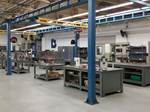
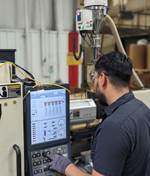



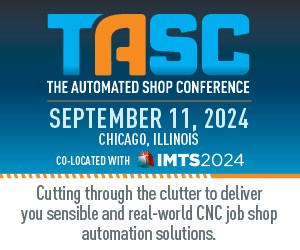
.png;maxWidth=300;quality=90)


